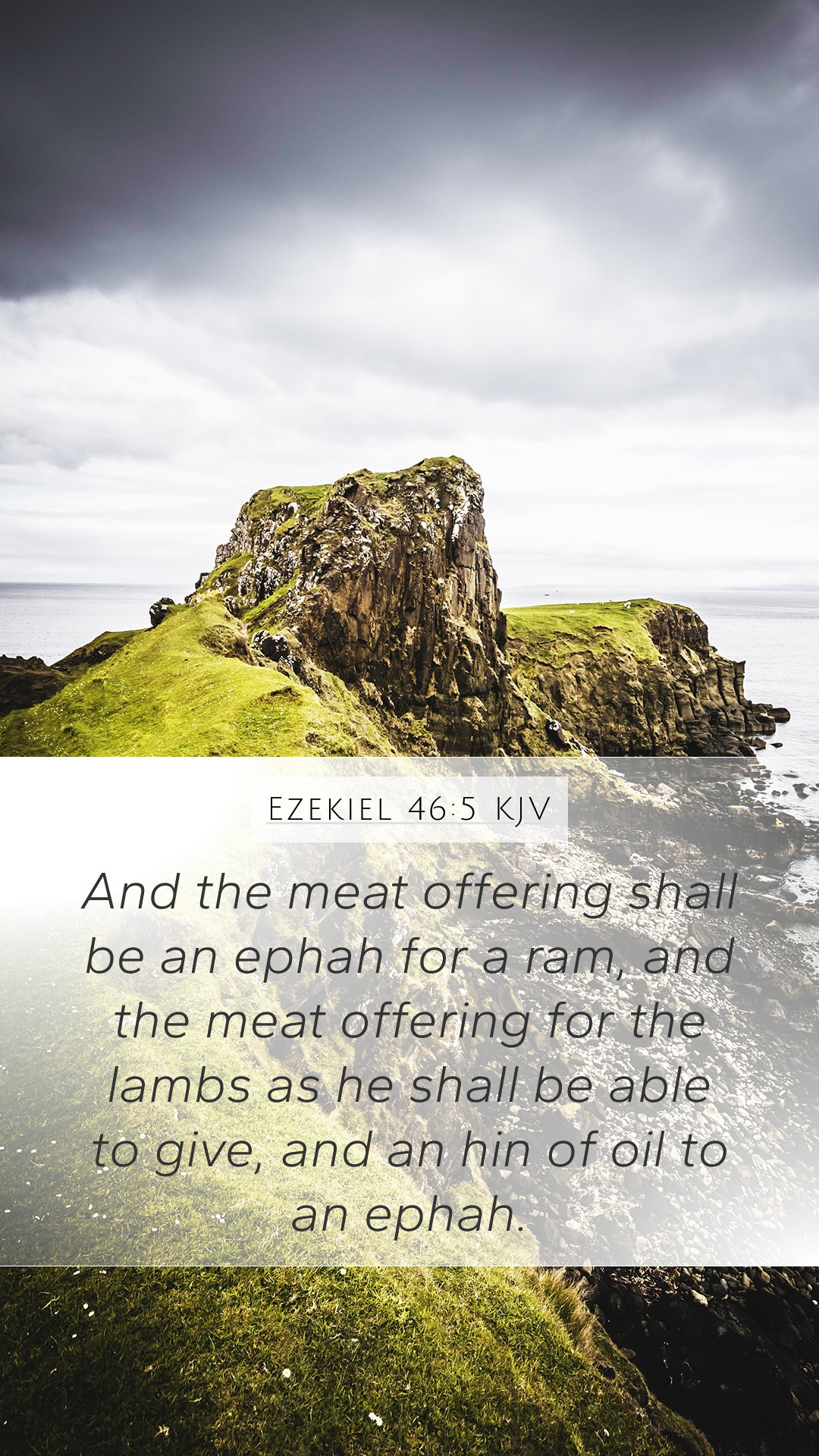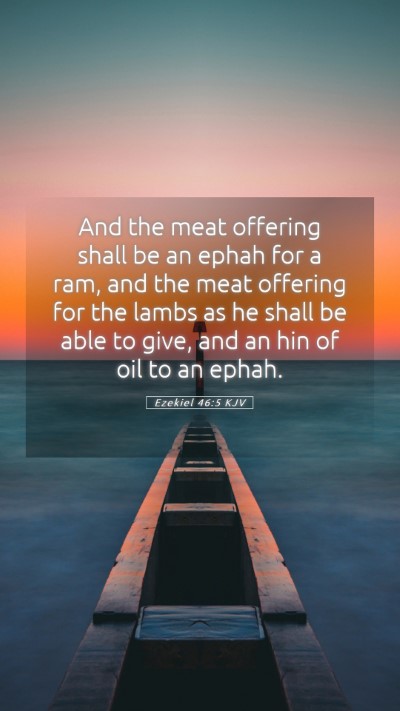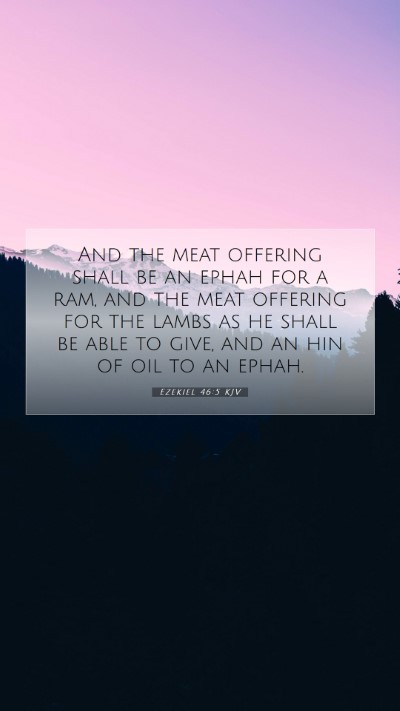Ezekiel 46:5 - Understanding the Meaning of This Bible Verse
The verse Ezekiel 46:5 reads: "And the meat offering that is offered to the LORD shall be an ephah for a bullock, and an ephah for a ram, and for the lambs according as his hand shall attain unto, and a hin of oil to an ephah." This passage, while seemingly straightforward, holds deep significance within the context of worship, offering, and God's provisions. Below, we combine insights from renowned public domain commentaries by Matthew Henry, Albert Barnes, and Adam Clarke for a comprehensive understanding of this verse.
Contextual and Historical Background
Understanding the context of Ezekiel 46:5 is crucial. This chapter outlines the regulations and requirements for worship in the future temple as revealed to Ezekiel. After the Babylonian exile, this vision of a renewed temple and reformed worship signifies a restoration of Israel's relationship with God. The specifics of offerings are detailed to show the meticulous nature of worship in Israel.
Importance of Offerings
The significance of the offerings described in this verse emphasizes the role of sacrifice in maintaining a relationship with the Lord. Matthew Henry notes that these offerings were not mere rituals; they represented a heart of devotion towards God. The ephah (a measure for grain) and hin (a measure for liquids) signify the expectations of God for substance and quality in offerings. The provisions for the priestly duties underscore God's desire for sincerity in worship.
Insights from Commentaries
- Matthew Henry's Commentary: He highlights that the details of offerings serve to instruct the people about the proper way to approach God. The quantity outlined implies that God desires our best. Moreover, it reflects God's abundance and provision for the needs of the worshippers.
- Albert Barnes' Notes: Barnes explains that the systematic provision of offerings elaborates on the principles of equity and sufficiency. Each type of animal—bullock, ram, and lamb—has specific requirements based on circumstances and the wealth of the individual making the offering. This provides a flexible yet structured approach to worship.
- Adam Clarke's Commentary: Clarke provides a detailed breakdown of the offerings' practicalities, suggesting that the regulations are aimed at ensuring orderly worship and fostering communal participation in sacrifices. He also connects the ephah and hin as symbols of completeness and fullness in offerings, which God values highly.
Theological Implications
The theological implications of Ezekiel 46:5 extend beyond the act of offering itself. This verse indicates God's longing for reconciliation and the importance of regular, structured worship as central to the Israelites' spiritual life. Understanding Scripture requires recognizing that God demands both heart and obedience in worship. The specifications outlined highlight a God who is both transcendent and immanently involved in the lives of His people.
Application of the Verse
When considering how to apply Ezekiel 46:5 in our daily lives, we can draw parallels between the offerings of the Old Testament and our own sacrificial living today. As believers, we are called to present our bodies as a living sacrifice (Romans 12:1). Just as the Israelites were expected to offer their best to God, we too are reminded to live lives that honor Him fully.
Connecting with Modern Worship
In modern-day worship settings, the principles of this verse can be used to evaluate our own acts of service and offerings. Are we giving our best? Are we living in a manner that invites God's presence? The specific nature of offerings can remind Bible study groups to curate their gatherings with intention, ensuring that worship is conducted in a way that reflects reverence and appreciation for God's grace.
Cross References
- Leviticus 1:3 - Detailed instructions about burnt offerings.
- Deuteronomy 16:16 - Mandate for feasts and offerings in worship.
- Romans 12:1 - Call for believers to present themselves as living sacrifices.
- Hebrews 13:15-16 - Praise and good works as our sacrifices to God.
Conclusion
In conclusion, Ezekiel 46:5 serves as a vital reminder of the importance of worship, sacrifice, and relationship with God. Through comprehensive Bible verse commentary and study, we gain deeper insights into our covenant with God and the significance of our offerings in all forms, whether they be physical, emotional, or spiritual. This verse encourages an active engagement with the concept of sacrifice in our faith journey and calls us to approach God with sincerity and intent.


